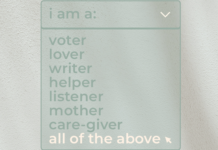“The only things that matter in life are your relations to other people.”
Close relationships are the key to successful aging, it turns out. Not low cholesterol, a healthy 401K, a long career or how many miles you can clock on the treadmill. Not even your intelligence. And George Vaillant, MD, has the proof, having studied what it takes to lead a meaningful and long life.
However, we live in a culture that celebrates the individual. Thanks to the internet and media, we are bombarded with examples of self centeredness. Posting details, both poignant and mundane, of our lives online is commonplace: “Got married” and “Just ate eggs for breakfast!” are familiar Tweets. Every part of our lives is telegraphed out to the world in the most impersonal way.
Music mirrors this cultural trend. In a study analyzing song lyrics from 1980-2007, psychologists found a significant increase in the use of self-focused words like “I” and “me.” Hits from years prior such as, “Let’s All Celebrate and Have a Good Time,” by Kool & The Gang, emphasized togetherness, whereas the hits of today are unambiguously more self-centered. Justin Timberlake proclaims, “I’m Bringing Sexy Back,” and Justin Bieber’s recent hit, “As Long as You Love Me,” is yet another example of our ‘me’ culture. The 80s may have been the Me Generation, but the 2000s are starting to look like the Me Millennium. Hopefully we can change that for our own good.
Scientific research provides ample evidence that close relationships aren’t just important sources of life satisfaction, but strongly linked to everyday health and well-being. During periods of stress, relationships play a major role, and it isn’t just anecdotal. Studies tell us that we perceive a hill as less steep if we are with a friend, and physical pain is reduced when in the presence of a loved one.
On the biochemical level, social contact and physical affection lower stress related hormones, enhance immune functioning and diminish responses to inflammation. Hugs increase circulating levels of oxytocin, a chemical that lowers blood pressure. Think about it — a hug can help your health.
It’s easy to lose sight of the fundamental truth that relationships are vitally important. Our culture encourages us to be internally focused on short-term results, tangible accomplishments and our independent selves. As wonderful as Facebook is at helping us stay in touch with friends who live in faraway places, virtual bonds can’t take the place of face-to-face interactions or yes, even picking up the phone and having a back and forth conversation.
Spending quality time together matters.
I wish you all the best,
Dr. Samantha Boardman






